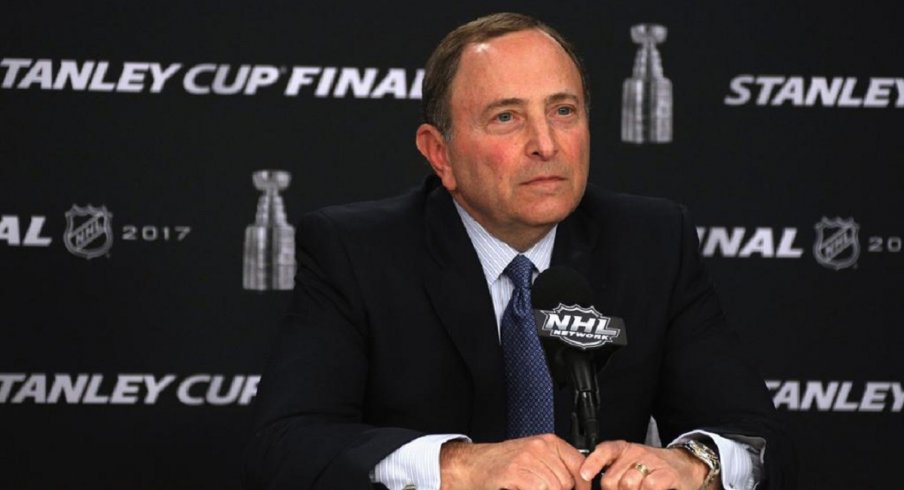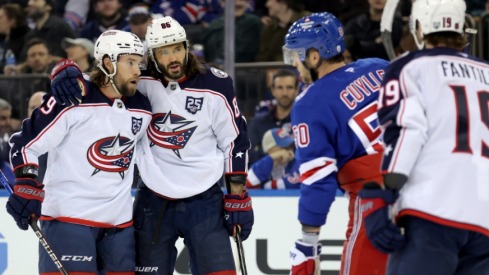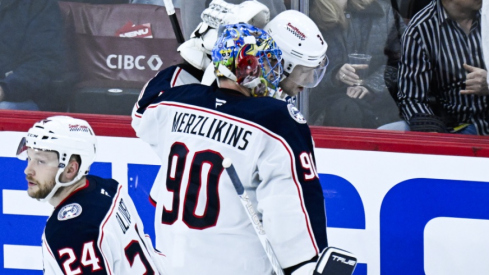As the NHL remains shelved during the coronavirus pandemic, league revenues have correspondingly fallen dramatically.
For the first time since the 2013 lockout, the league is poised to halt a growing salary cap. But while it's too early to say what the revenues from this season will ultimately be, there is growing optimism that a resumed season could lead to the salary cap upper limit staying flat at $81.5M, as opposed to falling.
Since the start of the salary cap era in 2005-06, teams have grown accustomed to higher limits basically every season, which allows them to give pay raises and try (and I do mean try) to improve their team players in free agency. To say that the majority of NHL teams will be adversely affected by a flat (or falling, obviously) cap would be a giant understatement. Nobody saw 2020 coming, and teams spend more money now than ever.
The Athletic's Jonathan Willis found that, on average, the recent trend in the NHL shows there has been less money available in each of the past three offseasons. Put succinctly:
"The problem for teams is that compared to last season they're spending more money on fewer players. In the 31-team NHL, this coming offseason will mark a low for existing contracts and a high for committed dollars".
This will have implications across the NHL for years to come. Teams that have 'bad' contracts or have players on buy-outs are more impacted than teams who are more judicious with their cap spending, but at the end of the day, no team will come away completely unscathed.
The Blue Jackets are fortunate that they count themselves as one of the few teams that meet that criteria. After this season, the only buyout on their payroll is Scott Hartnell, per CapFriendly. His cap hit is a tolerable $1.25M, and 2020-21 is his final year of pay. The Blue Jackets don't have many regrettable contracts. Brandon Dubinsky's $5.85M would be an issue if not for long-term injury reserve (LTIR). The Blue Jackets can't love paying Wennberg $4.9M through 2022-23, but there are far worse deals around the league.
There has been speculation that the NHL will give teams a compliance buy-out option this off-season to help quell these inevitable pinches. With a surplus of forwards and a tighter-than-expected budget, the Blue Jackets may look to buy out a player like Wennberg, but we're getting ahead of ourselves.
Much can and will change, but the Blue Jackets may be in a position to weaponize their cap position in the upcoming offseason. Per CapFriendly, the Blue Jackets have a projected cap hit of roughly $75.1M heading into 2020-21. That number is misleading, as players like Pierre-Luc Dubois, Josh Anderson, and Vladislav Gavrikov are RFAs who will need a new contract. But with zero UFAs on the roster, the club has a good idea of what their roster could look like next year. And, without beating a dead horse, they have more NHL players than roster spots, so they could look to complete a package deal in exchange for a more expensive/dynamic player. That is less likely than it was pre-pandemic, though, as Willis points out:
"It hasn't been all that easy to dump contracts the last couple of summers, and the 2020 offseason will be more difficult still. Teams may find themselves forced to honour commitments they would otherwise have shifted elsewhere."
Another manner in which Columbus is advantaged is in free agency. This class is headlined by Taylor Hall, Alex Pietrangelo, and Braden Holtby. The Blue Jackets aren't historically a particularly active team in UFA and, with no marquee center on the market, it's hard to imagine the team heavily involving themselves in free agency, where teams often make regrettable decisions. If they are involved, they will likely find a marketplace where cap pressures around the league will push down the costs for these players. A win, win for the club, though it's terrible timing for these impending UFAs.
Lastly, in a salary cap league, a great equalizer is having players on inexpensive entry-level contracts (ELCs). The Blue Jackets could enter the 2020-21 season with Emil Bemstrom, Alexandre Texier, Liam Foudy, and Andrew Peeke all on ELCs, and others like Eric Robinson and Nathan Gerbe also earning less than $1M. This gives the club a great deal of flexibility with their roster construction.
The NHL is and will continue to navigate unchartered waters in the coming months. Even an optimistic viewpoint has the salary cap staying flat, which will put a lot of pressure on a number of NHL franchises. The Blue Jackets are - all things considered - well-positioned to handle this new environment.


